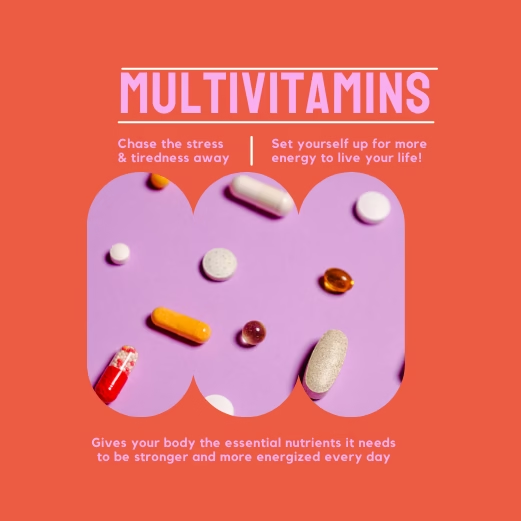
1. Understand the Purpose of Multivitamins:Multivitamins are designed to supplement the nutrients that may be missing from your diet. While they do not directly promote weight loss, they can support a more balanced weight loss by addressing factors that may hinder your metabolism and energy levels.
2.Identify Nutritional Deficiencies:
Metabolism slowing down, reduced energy, and an impact on fat-burning efficiency is a result of a lack of some vitamins, such as B complex vitamins (B12, B6), iron, and vitamin D. The first key is to test your nutritional levels with your healthcare provider.
3.Choose the Right Multivitamin:
Look for supplements with adequate amounts of:
Vitamin D: It might help if levels are low.
B12 and B6: Provide support for fat metabolism and energy production.
Magnesium and iron: They help maintain energy regulation as well as metabolic functions.
Understanding Vitamin B: Benefits and Functions in the Human Body
4. Pair with a Balanced Diet:
The best way to get vitamins is through nutrient-rich food. Make fruits, vegetables, lean protein, and whole grains a priority to naturally boost your vitamin levels.
5.Make Healthy Lifestyle Changes:
Calorie Deficit: It will not replace the need to reduce the number of calories you consume compared to what you burn.
Exercise: Regular exercise boosts metabolism and maintains overall health.
Sleep and Stress Management: Even having proper nutrition is not enough to lose or keep off weight if one is unable to sleep properly and stressed out.
6. Don’t Oversupply:
Multivitamins can indirectly support weight loss, but if you don’t address diet and lifestyle factors, results will be limited. Make sure your ‘food-first’ approach is always the focus.
Key Takeaway:
They aren’t a direct solution, but multivitamins may help mitigate deficiencies that might hinder weight loss. They should be used as part of a wider strategy, which includes a healthy diet and exercise alongside lifestyle changes. Before starting any supplement regimen, discuss with a healthcare professional about safety and effectiveness.
Vitamin D: It might help if levels are low.
B12 and B6: Provide support for fat metabolism and energy production.
Magnesium and iron: They help maintain energy regulation as well as metabolic functions.
Exercise: Regular exercise boosts metabolism and maintains overall health.
Sleep and Stress Management: Even having proper nutrition is not enough to lose or keep off weight if one is unable to sleep properly and stressed out.
RELATED POSTS
View all


